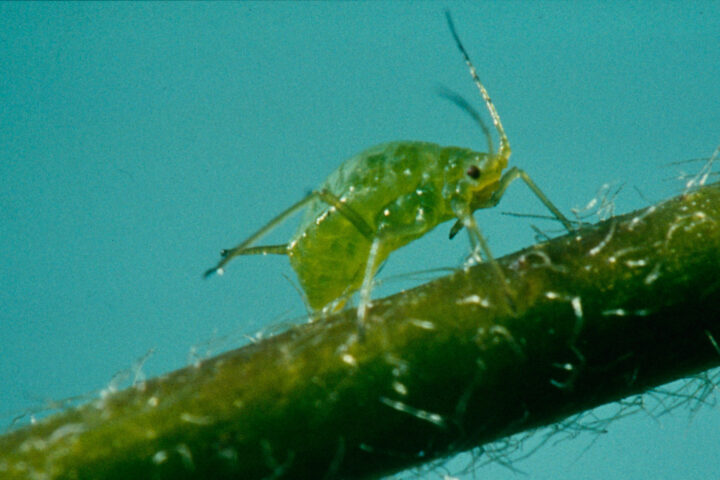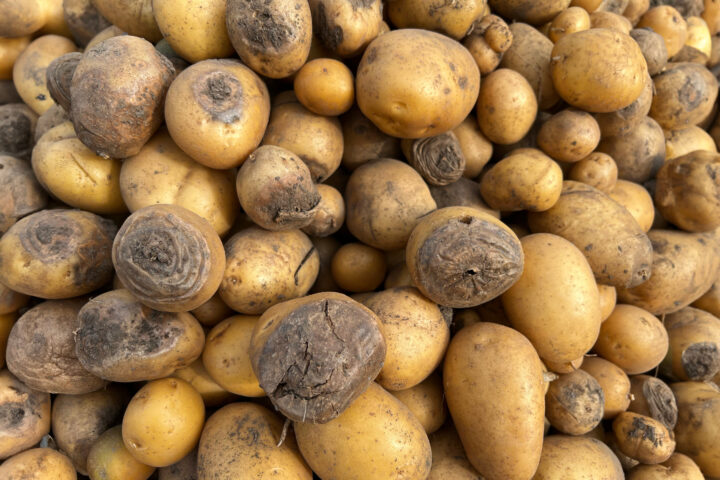
Faster Approval of Crop Protection Products Long Overdue
Switzerland diligently bans active substances that have also been withdrawn from the market in the EU. Conversely, it is dragging its feet: modern products that are approved in neighboring countries remain blocked. With the adoption of the amendment to the Agriculture Act, the National Council has now taken an important step toward faster approval of plant protection products. One can only hope that the Council of States will take the next step.
Thursday, December 11, 2025
The National Council has sent an important signal by adopting the Bregy parliamentary initiative (amendment to the Agriculture Act) during the 2025 winter session. Plant protection products approved in an EU neighboring country, Belgium, or the Netherlands should become available more quickly via a simplified procedure—provided that the agronomic and ecological conditions are comparable. A majority also supports adopting relevant emergency approvals from the EU so that Swiss farms are no longer at a disadvantage under acute pest pressure.
The Federal Council is also moving
The Federal Council has adopted the total revision of the Plant Protection Products Ordinance. This is a step toward greater transparency and more efficient processes. It is a move in the right direction, but the Federal Council’s proposal still falls short. The corset remains too tight, and truly faster approvals cannot be derived from it. That is why implementing the parliamentary initiative Bregy remains important and urgent.
The pressure for reform is high. More than 700 crop protection products are awaiting a decision. At the same time, the number of available active substances has shrunk significantly; emergency approvals have recently reached record levels. Old substances are disappearing, while new ones—often more selective and environmentally friendly—are not coming in. This increases the risk of crop losses, for example in sugar beets or in viticulture affected by mildew, and forces the government to grant exemptions more and more often.
Switzerland needs a streamlined, EU-compatible approval system with clear deadlines and reasonable fees. Faster access to modern products reduces environmental impacts and strengthens supply security. It now remains to be seen how the Council of States will set the course.
Still unsure whether faster approval is necessary? Then a subscription to the agricultural media is worthwhile—the reality is striking: reports about invasive and domestic pests, from the spotted-wing drosophila to the Japanese beetle and the Asian hornet, fill the pages. Here’s the link to BauernZeitung. And here to Schweizer Bauer. Three producer representatives also described very vividly at the Swiss Food Talk on 1 July 2025 that crop protection in Switzerland is no longer guaranteed.
Kindly note:
We, a non-native editorial team value clear and faultless communication. At times we have to prioritize speed over perfection, utilizing tools, that are still learning.
We are deepL sorry for any observed stylistic or spelling errors.
Related articles

Pesticide cuts
In Switzerland, a growing number of pesticides are being banned by the authorities. At the same time, there are almost no new ones entering the market. The regulatory authorities are severely overstretched. Things cannot go on like this. Every product that disappears from the market increases the risk of pests developing resistance and of crops failing.

From molecule to crop protection product
On average, five crop protection products are approved for the market each year worldwide. Developing new products is challenging, time-consuming and expensive. It takes more than 12 years from the start of the search for a suitable substance to the approval of the market-ready product. The costs amount to more than 300 million US dollars. Every new crop protection product must meet strict requirements. The approval procedures for crop protection products are comparable to those for new drugs.

Crop protection products are in short supply - and soon the first vegetable varieties too
Vegetable producers are currently struggling. The reason for this is the lack of crop protection products . It is becoming increasingly difficult to bring saleable products onto the market. Some farmers are even reaching their limits to such an extent that they have had to stop growing certain vegetable varieties.

Assess scientifically instead of banning indiscriminately
The debate surrounding PFAS is gaining momentum in Switzerland. At its core are questions about potential risks to human health and the environment, as well as future regulatory approaches. A differentiated, science-based approach is essential – as emphasised by scienceindustries in a short interview with Dominique Werner, Head of Chemicals Regulation.

Differing perceptions
While the increasing administrative burden is perceived as the main concern in the economy, parts of the population see it differently. Meanwhile, regulations are repeatedly misused as a means of exerting power in the competitive struggle – to the detriment of SMEs.

Domestic production as a blind spot
Switzerland's food security is increasingly under pressure: last year's disastrous wheat and potato harvests have led to an increasing dependence on imports. However, the report by the Federal Office for National Economic Supply (FONES) is largely silent on the precarious state of the domestic agricultural sector. The IG BauernUnternehmen (Farmers' Company) has therefore sharply criticised the federal government.

PFAS regulation in Switzerland: Not faster, but better
Some people also call PFAS ‘forever chemicals’. Their use must be regulated as wisely as possible. To do this, the federal government first needs to do precise groundwork, according to Stefan Brupbacher, Urs Furrer and Stephan Mumenthaler.

